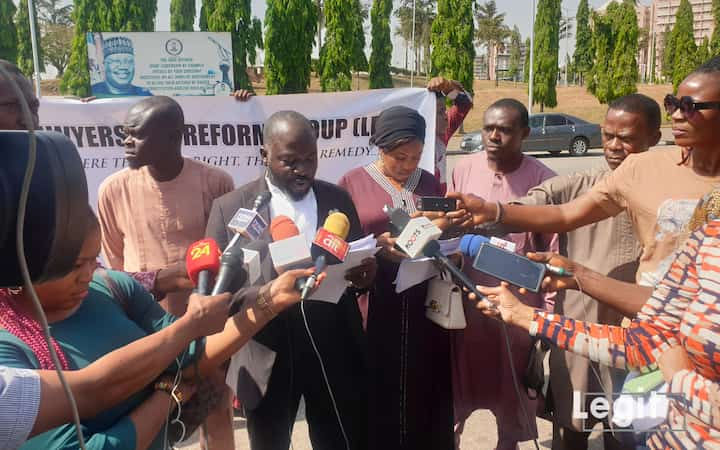Galaxy Backbone Enabling ICT For Enhanced Public Governance, by Inyene Ibanga

A significant number of government organisations are embracing Information, Communication and Technology (ICT) as a tool for transforming and improving public service and effective governance at all levels.
Examples abound across developing and developed countries of the world to showcase the achievements and potentials of ICT in offering new opportunities for improvements in public service delivery, public administration, and clarity in government policies.
ICT makes relevant data easily accessible in all departments and levels of government; lowers administrative costs; ensures efficient governance capability; facilitates new approaches for citizens’ participation; and strengthens governmental transparency and accountability.
It involves the delivery of government services through the integration of various systems between government-to-citizens, government-to-business, and government-to-government services. Through the use of ICT, government services are made available to the citizens in a convenient, efficient, and transparent manner.
However, the adoption of ICT for a result-oriented public service should adhere to an integrated strategy to ensure it fits the users’ needs and objectives, under a unified set of rules and regulations.
In 2006, the Federal Government of Nigeria established the Galaxy Backbone (GBB) Limited, based on the need for government to promote a coordinated and harmonised approach to ICT acquisition, operation, and use in the public sector.
It was given the primary mandate of developing and operating a unified ICT infrastructure platform that addresses connectivity and other technology imperatives for ministries, departments, and agencies (MDAs) of government.
Essentially, GBB was established to enable the Federal Government to gain more value from its investments in ICT by eliminating duplication, establishing economics of scale, enhancing interoperability of systems, and improving the government’s capacity to deliver electronic services.
It has been able to build a common services platform consisting of in-country and offshore Very Small Aperture Terminal (VSAT) hubs, a datacentre, Federal Capital metro fibre backbone, and multiple redundant internet gateways.
Being one of the key agencies in the Ministry of Communications and Digital Economy, the GBB continues to operate, improve and upgrade its common services platform to meet international standards. It is also operating a nationwide network backbone to facilitate the digital inclusion of underserved areas and rural communities.
As the digital, network and shared services provider to the government, BGG’s coverage of public institutions is expanding with over 4,000 locations, representing over 350 MDAs across various parts of Nigeria.
In September 2020, the Federal Government approved for GBB to upgrade ICT infrastructure to boost the provision of Local Area Network (LAN) and other digital services to MDAs.

This was in continuation of the government’s digital transformation agenda for the provision of electronic services delivery to enhance government service and access to innovations in expertise.
Earlier in July 2020, the Federal Government approved the deployment of the second phase of the National ICT Infrastructure Backbone (NICTIB) by GBB to connect all Federal Government secretariat complexes nationwide by providing e-government connectivity and broadband internet.
Recently, GBB partnered Cyber Immune Limited, a subsidiary of Shelt Global Limited, a technologically-advanced European-based Managed Security Service Provider (MSSP), to deliver cybersecurity solutions to secure Digital Nigeria.
Previously, the government ICT services provider inked another deal with Newwaves Ecosystems Limited to deploy its home-grown virtual conferencing solution, Konne3ct, for video conferences, virtual meetings, and webinars in public service.
With this partnership, GBB hopes to get public service organisations to embrace the new normal as an increasing number of MDAs have migrated to virtual meeting and work environments in the face of the pandemic.
Beyond the string of groundbreaking partnerships, GBB under the leadership of its Managing Director/Chief Executive Officer, Professor Muhammad Abubakar, painstakingly developed a five-year strategic plan/business model to drive the company’s vision founded on six fundamental pillars.
The Galaxy 3.0 Strategic Plan (2020-2025) unveiled during its fifteenth anniversary in September 2020, has government policies as the first pillar, cybersecurity as the second pillar, and financial sustainability as the third.
Customer satisfaction, operational excellence, and capacity and capability enhancement make up the fourth, fifth, and sixth pillars respectively, within the policy frameworks of the National Digital Economy Policy and Strategy and Nigeria National Broadband Plan (2020-2025).
Meanwhile, the management of the GBB has continued to engage in mutually beneficial and strategic collaborations with its partner agencies in the Ministry of Communications and Digital Economy to implement the Digital Nigeria Project being championed by the Minister, Dr Isa Ali Pantami.
Such inter-agency collaborative engagements include digital skills enhancement training for members of the Digital Transformation Technical Working Group, jointly organised by the GBB and the National Information Technology Development Agency (NITDA).
To further illustrate the synergy between the agencies, the Director-General of NITDA, Mallam Kashifu Abdullahi, pledged to influence the implementation of the National Cloud Computing Policy and development of Nigerian content in ICT to assist GBB in its partnership with the cloud services, National Digital Economy Policy and Strategy and Nigeria National Broadband Plan (2020-2025)
For GBB to deliver on its key mandates, the government needs to support it with adequate fund to enable the company to provide effective internet connectivity to the MDAs and compete favourably with private sector counterparts.
Inyene Ibanga is Managing Editor TechDigest, writes from Wuye District, Abuja.







